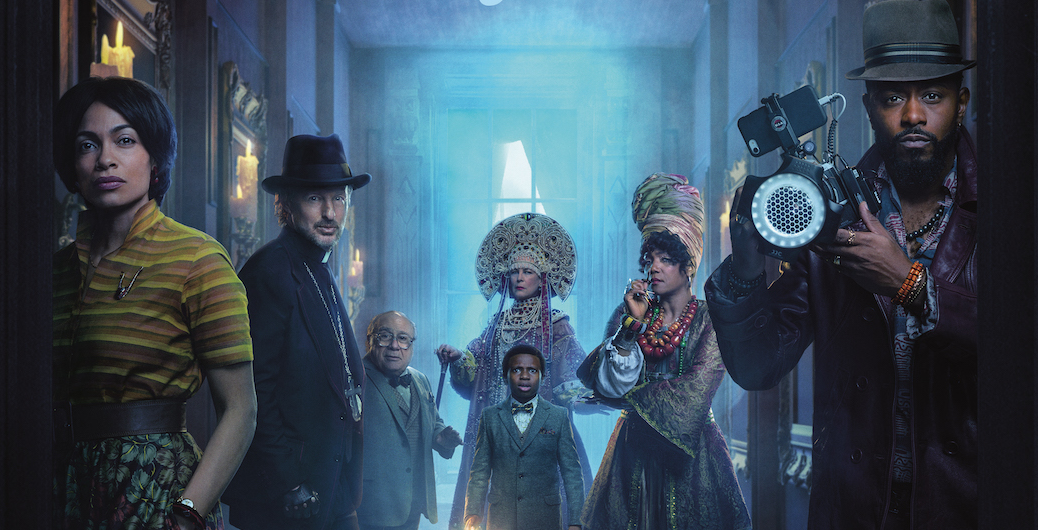Haunted Mansion
by Hope Madden
My favorite thing to read when I was a child was Disney’s Haunted Mansion. I had the book with the 45 record and fold out, suitcase-looking record player. I listened to it relentlessly, and could recite it still today.
The Disney theme park ride is still my favorite ever.
But The Mouse has had a time trying to figure out how to turn that ride into anything worth watching. Rob Minkoff’s 2003 film stunk up the place, and even 2021’s Muppet version was only mildly entertaining. And it starred Muppets!
Still, I held out hope for the latest adaptation for a number of reasons, starting with the cast. LaKeith Stanfield is a remarkable actor. Tiffany Haddish is funny as hell. Rosario Dawson, Owen Wilson, Jamie Lee Curtis and Danny DeVito – while often in bad movies – never let you down themselves.
But mainly it was director Justin Simien I trusted. The director behind 2014’s Dear White People and 2020’s Bad Hair has yet to let me down.
Had yet to.
Stanfield plays Ben Matthias, a nonbelieving scientist convinced by Father Kent (Wilson) to bring his equipment and help a mom (Dawson) and her young son (Chase Dillon) clear their new mansion of ghosts. Out of their depth, the pair eventually enlist the aid of a medium (Haddish) and haunted house expert (DeVito).
Katie Dippold’s screenplay picks up on some of the most memorable elements of the ride – ghosts that follow you home, for instance – but most of the spooky fun gets little more than glimpsed. Worse still, the filmmakers miss what makes a haunted house movie compelling – namely that you can’t leave. Everybody keeps leaving. They come back, but this traveling breaks any spell the film begins to cast and leads to a disjointed, sprawling storyline. Unimpressive ghost FX don’t help the film regain its sense of spooky wonder.
Stanfield gives his all, delivering a tender hearted, emotional performance that honestly feels out of place surrounded by such superficial camp. Curtis lacks the comedic timing her character requires – especially disappointing in scenes with Haddish (funny as ever).
Owen Wilson is Owen Wilson, but watching him give a pep talk to a bunch of poorly designed but nonetheless impressionable ghosts is one of the film’s high points. The other is a surprise cameo from Winona Ryder. But it’s not enough.
I cannot figure out why it’s so hard to mine the dozens of ghosts mentioned in this ride and book for a decent haunted house story, but I’ve definitely learned to stop getting my hopes up. If Justin Simien can’t do it and the Muppets can’t do it, it’s probably time to give up.











